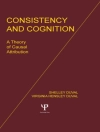For preschool children with emotional difficulties arising from difficulties in attachment, standard observations used in early years settings are not always helpful in identifying their problems and providing guidance on how they can be helped.
Combining an accessible introduction to attachment and child development with a child observation tool for identifying behaviour, and the emotional needs underlying this behaviour, this book enables early years professionals to identify problems and provide appropriate support. ‘Case study’ boxes help to illustrate typical patterns of attachment, and all aspects of behaviour are covered including play, interaction with peers, neediness, and aggression. A range of handouts and activities is included, and guidance provided on how to work within professional boundaries. Written in clear, concise language, Observing Children with Attachment Difficulties in Preschool aims to equip the reader with the knowledge and skills needed to identify and support children’s emotional and social difficulties.
Suitable for use with children aged 2 – 5, this guide will be an invaluable resource for early years professionals, as well as for use by clinicians, teachers and learning support staff.
Зміст
Acknowledgements. Biographies. Foreword. Introduction. 1. Recognising the Emotional Needs of Children in Early Years Settings. 2. Observation Checklist. 3. Notes to Accompany Observation Checklist. 4. Developing Support to Meet the Emotional Needs of Children in Early Years Settings. 5. Challenges in Supporting the Emotional Needs of Children with Attachment Difficulties. Appendices. References.
Про автора
Kim S. Golding CBE, BSc, MSc, D. Clin. Psy. AFBPs S is a clinical psychologist who works in Worcestershire, England where she was influential in the founding of the Integrated Service for Looked After Children – a multi-agency, holistic service providing support for foster, adoptive and residential parents, schools and the range of professionals supporting children growing up in care or in adoptive families. Kim was trained and mentored by Dan Hughes in the use of Dyadic Developmental Psychotherapy (DDP). She was formerly on the board of the Dyadic Developmental Psychotherapy Institute supporting the use of DDP in Europe, USA and Canada. She accredits and trains professionals in the approach and has been invited to speak about this work internationally.












